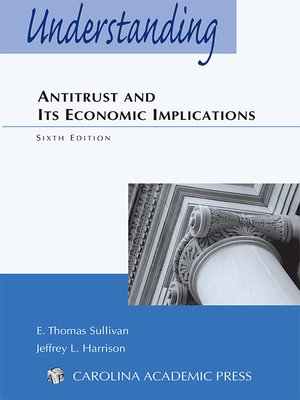
Sign up to save your library
With an OverDrive account, you can save your favorite libraries for at-a-glance information about availability. Find out more about OverDrive accounts.
Find this title in Libby, the library reading app by OverDrive.



Search for a digital library with this title
Title found at these libraries:
| Loading... |
This Understanding treatise is designed to supplement any antitrust casebook. When the first edition was published over twenty years ago, the Supreme Court was in the midst of reshaping antitrust law to reflect its philosophy that it should adhere to the teachings of economics. During the six years since the Fourth Edition was published, this process has continued as the Court sought to achieve greater consistency. For example:
• The Court removed resale price maintenance (RPM) from the list of per se unlawful activities.
• The Court has also made it clear that it would treat secondary line price discrimination - perhaps the last remaining element of the populous antitrust philosophy of the 1960s - in a manner consistent with its emphasis on efficiency.
• The Court made one of its first forays into the theory of monopsony and addressed the question of how antitrust law applies to market power on the buying side of the market.
The process of rationalizing antitrust law is far from complete. For example, the Court's newly announced position on RPM raises a number of issues. Specifically, many past decisions by the Supreme Court and lower courts reflect either approval or disapproval of the per se status of RPM. Now that the rule has been changed, the relevance of that law is in question. In addition, a truly consistent antitrust policy requires close attention to various exemptions. Exemptions based on non economic considerations are hard to reconcile with the path the Court has chosen. Finally, in a global economy, matters of market power and the competitive impact of various agreements must be viewed from an international perspective.
Professors and adjunct professors may request complimentary examination copies of LexisNexis law school publications to consider for class adoption or recommendation.






